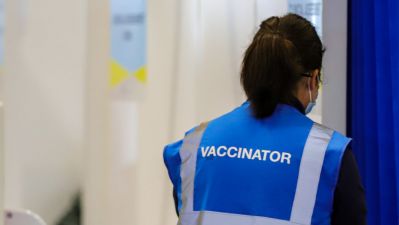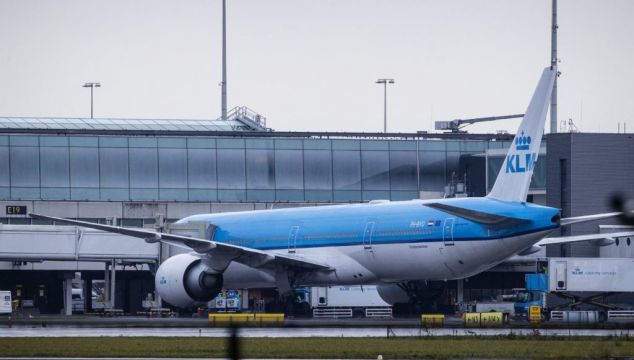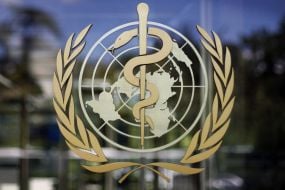The Netherlands, Italy and Germany have followed Belgium to become the next European Union nations to detect cases of the new Omicron variant of Covid-19.
Dutch health authorities said on Saturday they had detected 61 Covid-19 cases among people who flew from South Africa on Friday and believe at least some infections are of the new variant.
The cases were discovered among 624 passengers who arrived at Amsterdam's Schiphol Airport on two flights on Friday before the Dutch government restricted air traffic from southern Africa due to concerns over the variant.
"In a number of the tested persons the Omicron variant is presumed to have been found," the Netherlands Institute for Health (RIVM) said in a statement.
An RIVM spokesperson said it was "almost certain" the cases were of the new variant, but further testing was needed to be absolutely sure. The RIVM would not say how many cases it suspects to be of the variant.
'We don't have an explanation'
The passengers from Friday's flights were kept separated from other travellers and those who tested positive are now being kept in isolation at a hotel near the airport.
A spokesperson for KLM, the Dutch arm of Air France, said the passengers on the flight had either tested negative or shown proof of vaccination before getting on planes in Cape Town and Johannesburg.
"It goes too far to say we are surprised" by the high number of cases, a KLM spokesperson said. "But we don't have an explanation."
The spokesperson said it was possible many of the positive cases were among vaccinated people, or that an unusual number of people developed infections after having tested negative.
A passenger on one of the flights, Dutch photographer Paula Zimmerman, said the situation for the passengers on the planes was chaotic as they were kept waiting on the tarmac and in the terminal for hours.
Ms Zimmerman was told she had tested negative at 4am, almost 18 hours after landing in Amsterdam. But she then found out she was standing right next to a man who discovered he had tested positive.
"I’ve been told that they expect that a lot more people will test positive after five days. It's a little scary, the idea that you’ve been in a plane with a lot of people who tested positive."
Variant latest
- Italy, Germany and Britain latest European nations to confirm cases
- Boris Johnson tightens Covid rules after variant reaches UK
- South Africa says it is being "punished" for early variant detection
- Work under way to tweak vaccines in light of variant
- Currently no evidence vaccines will not work against variant - Nphet member
Elsewhere in the EU, two cases of the new variant were detected in the southern German state of Bavaria on Saturday. The region's health ministry said the two infected people entered Germany at Munich airport on November 24th and are now isolating.
Italy's national health institute also confirmed a case had been detected on Saturday evening.
Britain earlier on Saturday detected two cases of the variant in England, and British prime minister Boris Johnson announced new steps to contain the virus in response.
The two linked cases of the new variant detected in England were connected to travel to southern Africa, British health minister Sajid Javid said.
Mr Johnson laid out measures that included stricter testing rules for people arriving into the UK, but stopped short of curbs on social activity other than mask wearing in some settings in England.
"We will require anyone who enters the UK to take a PCR test by the end of the second day after their arrival and to self-isolate until they have a negative result," Mr Johnson told a news conference.
England's chief medical officer, Chris Witty, said at the same news conference as Mr Johnson that there was still much uncertainty around Omicron, but "there is a reasonable chance that at least there will be some degree of vaccine escape with this variant".
Suspected
Elsewhere in Europe, Czech health authorities also said they were examining a suspected case of the variant in a person who spent time in Namibia.
Omicron, dubbed a "variant of concern" by the World Health Organisation, is potentially more transmissible than previous variants of the disease, although experts do not know yet if it will cause more or less severe Covid-19 compared to other strains.
The variant was first discovered in South Africa and had also since been detected in Belgium, Botswana, Israel and Hong Kong, prior to the new detections announced on Saturday.
Its discovery has prompted nations around the world - including the United States, Brazil, Canada, Australia and European Union nations - to introduce travel bans or restrictions on southern Africa.
This has prompted the government of South Africa to criticise what it described as "punishment" for its quick detection of the variant.
South Africa is worried that the curbs will hurt tourism and other sectors of its economy, the foreign ministry said on Saturday, adding the government is engaging with countries that have imposed travel bans to persuade them to reconsider.
Omicron has emerged as many countries in Europe are already battling a surge in Covid-19 infections, and some have already re-introduced restrictions on social activity to try to stop the spread. Austria and Slovakia have entered lockdowns.
Vaccine disparity
The new variant has also thrown a spotlight on disparities in how far the world's population is vaccinated.

Even as many developed countries are giving third-dose boosters, less than seven per cent of people in low-income countries have received their first Covid-19 shot, according to medical and human rights groups.
Seth Berkley, CEO of the GAVI Vaccine Alliance that with the WHO co-leads the COVAX initiative to push for equitable distribution of vaccines, said this was essential to ward off the emergence of more variants.
“While we still need to know more about Omicron, we do know that as long as large portions of the world’s population are unvaccinated, variants will continue to appear, and the pandemic will continue to be prolonged," he said in a statement to Reuters.
"We will only prevent variants from emerging if we are able to protect all of the world’s population, not just the wealthy parts."







